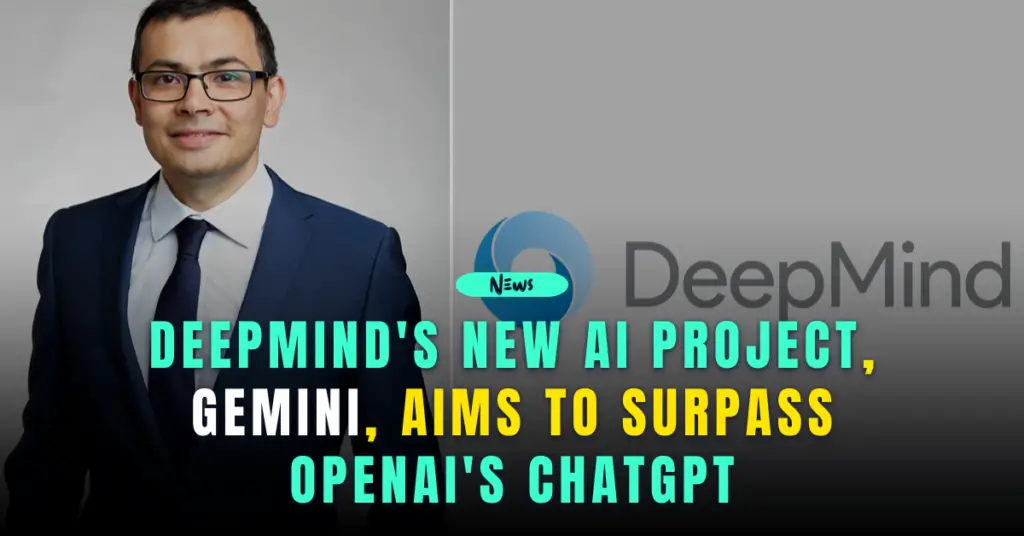文章来源于互联网:DeepMind’s New AI Project, Gemini, Aims to Surpass OpenAI’s ChatGPT

Google’s DeepMind, the firm behind the historic victory of artificial intelligence (AI) over human intelligence in the complex board game Go, is gearing up for another breakthrough.
Demis Hassabis, the CEO of DeepMind, has revealed that they are developing a more powerful AI language model named Gemini, intended to surpass OpenAI’s ChatGPT in capabilities.
In 2016, DeepMind’s AI program, AlphaGo, astounded the world by defeating a world champion Go player.
Gemini, The Fusion of Advanced Techniques
Hassabis explained that the company is planning to leverage the techniques used in the creation of AlphaGo for the development of Gemini. Gemini, similar to GPT-4, is a large language model that works with text.
“At a high level you can think of Gemini as combining some of the strengths of AlphaGo-type systems with the amazing language capabilities of the large models.”
Hassabi
The goal is to merge these technologies to equip Gemini with advanced features like problem-solving and planning.
The foundation of AlphaGo’s prowess was reinforcement learning, a method DeepMind has perfected.
The approach involves software learning to solve intricate tasks that require strategic decision-making through trial and error and performance feedback. AlphaGo also utilized a method called tree search to investigate and remember possible game moves.
The intent is to have Gemini imbibe similar methods and push the boundaries of language models, possibly even performing tasks on the internet and computers.
Hassabis indicated that the development of Gemini is a time-intensive process that might take several months and could involve significant funding.
Gemini’s Anticipated Capabilities
The completion of Gemini could significantly bolster Google’s response to the competition from ChatGPT and other AI technologies.
DeepMind was acquired by Google in 2014 after showcasing impressive results from software that employed reinforcement learning to master simple video games.
It demonstrated how AI can perform tasks once believed to be exclusive to human capabilities, often with superior proficiency.
DeepMind’s reinforcement learning expertise could potentially provide Gemini with unique abilities.
However, the journey towards AI advancements is fraught with risks and uncertainties. The rapid development in language models has raised concerns about misuse of technology and control issues.
Despite these concerns, Hassabis emphasized the extraordinary potential benefits of AI in areas such as healthcare and climate science, making it crucial not to halt its development.
Hassabis and his team, while acknowledging the challenges and potential risks, continue to forge ahead, focused on the development of more powerful and innovative AI models like Gemini.
The future of AI seems promising, yet the path ahead remains one of exploration and learning.
